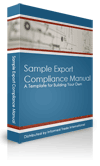Unwanted Advances – Tests, Arrests Draw Attention to Indian Missiles
  .jpeg)
Here’s hopin’ you your Monday went well…While you slept …. .Indian missile technology advances – and US officials suspect recent launches may be from stolen technology. We reported on the Cirrus export bust recently. I predicted some political fallout –but I haven’t heard a peep about the implications. I think the
Paris Hilton crises drowned this story out. Â -PZÂ From ArmsControlToday.com – Tests, Arrests Draw Attention to Indian MissilesÂ
Alex Bollfrass Â
Indian missile engineers are wasting little time celebrating their first successful intermediate-range ballistic missile test. With their confidence boosted, missile program managers have offered to develop an ICBM and announced upcoming missile defense tests. This push for ballistic missile advances coincides with federal government charges that a U.S. company has been violating
U.S. export control laws. Cirrus Electronics stands accused of transferring dual-use technology to Indian government laboratories.
 Parthasarathy Sudarshan, founder of Cirrus Electronics, was arrested March 23 together with his soleU.S. employee for supplying Indian weapons laboratories with electronic equipment suited for ballistic missiles and fighter aircraft. The indictment cites an Indian government official in the
United States and charges two Cirrus employees abroad.The defendants are charged with violating several laws that regulate what can be exported from the
United States and who may receive sensitive technology. Most military exports require a government license. Â The Department of Justice says Cirrus, knowing its Indian clients were unlikely to be approved, circumvented the licensing process by first shipping the items to
Singapore. The company also provided forged end-user certificates to its suppliers.
 The indictment’s first nine counts allege Cirrus illicitly aided
India’s missile program. The U.S. Department of Commerce maintains a list of companies and individuals ineligible to receive military and dual-use technology without a permit. Two Cirrus customers,
Vikram
Sarabhai
Space
Center and Bharat Dynamics Ltd., are on the list because of ballistic missile development work. They are owned and operated by the Indian government. Both received static random access memory chips and other electronic equipment for use in missile guidance and firing systems. Â The second series of charges involve combat aircraft technology. Military-use technology exports must be approved by the Department of State. Cirrus did not seek such approval for 500 microprocessors. They were shipped via
Singapore to the Aeronautical Development Establishment, a government outfit, for use in the Tejas Light Combat Aircraft. Â Circumstances surrounding this charge are diplomatically awkward. Indian government officials are directly implicated in the trafficking charges, despite past assurances to respect
U.S. export law. An unnamed Indian government official is believed to have accompanied Sudarshan on a visit to the microchips’ producer in February 2004. Seven months after the trip, India’s foreign secretary assured the State Department that facilities affiliated with the Indian government would never “obtain or use U.S.-origin licensable items in contravention of
U.S. export control laws and regulations.â€Â Moreover, Sudarshan and his employees “were in frequent consultation with Indian government representatives and were constantly acting at their direction and behest,†according to the Justice Department. The indictment calls Sudarshan an illegal agent of the Indian government.  Previous circumventions of
U.S. export laws have benefited Indian government weapons laboratories. Between February 2003 and April 2006, the Commerce Department investigated more than 60 possible violations involving Indian consignees. This violation appears to be the first facilitated by an Indian official in the
United States.
India reportedly relies on gray-market procurement for some of its weapons programs, particularly uranium-enrichment technology. Its position outside of international regimes regulating weapons technology trade, such as the Missile Technology Control Regime, restricts its ability to obtain technology and materials from the international market. The revelations also came at an inopportune moment as the United States and
India attempt to move forward with a nuclear cooperation agreement. Read the rest of the story at Arms Control Today.  Â
Posted on May 7th, 2007 by keeton
Filed under: News
.jpeg)

